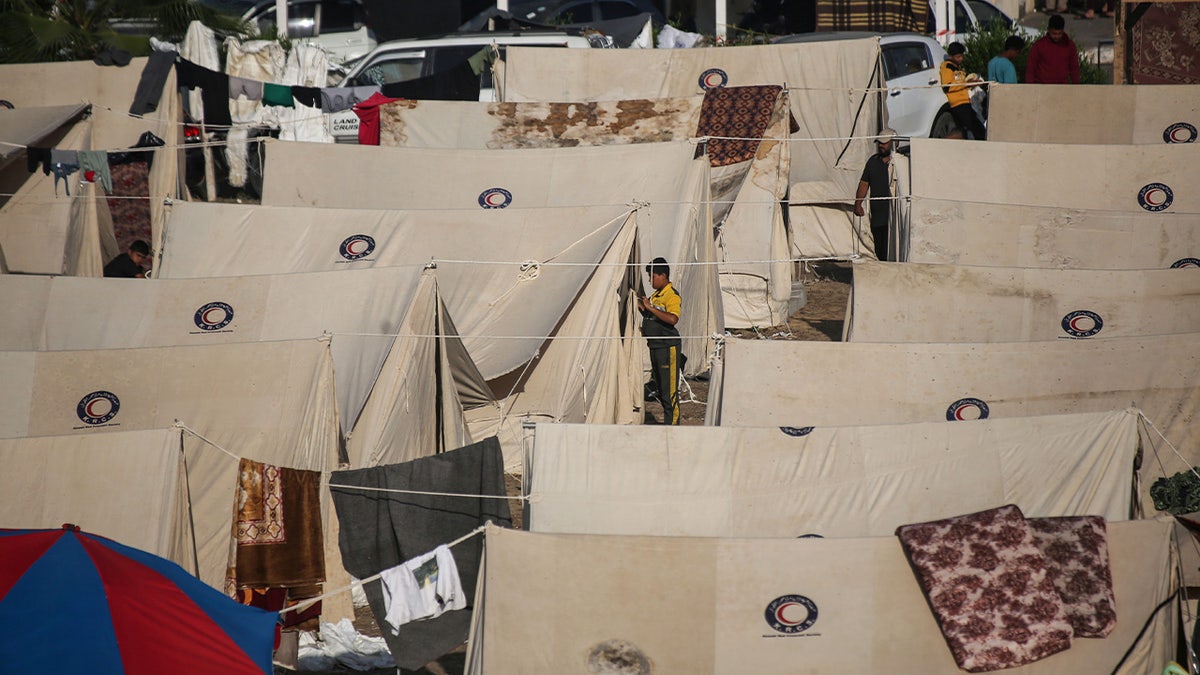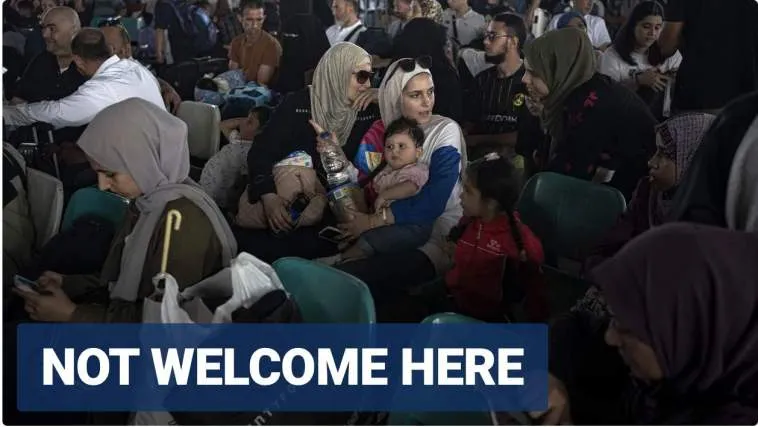(Fox News) At a summit of leaders from more than 50 Arab and Muslim states held last weekend in Riyadh, Saudi Arabia, Israel’s military response in Gaza following Hamas’ Oct. 7 massacre was fiercely condemned.
But what was missing from the gathering’s final statement was any immediate solution for the 2.3 million civilians of the Palestinian enclave, more than half of whom are now internally displaced after nearly six weeks of fighting.
While the final resolution called for an immediate end to “the brutal Israeli aggression on Gaza” and made offers of humanitarian and financial aid to the Palestinians, not one country came forward with a viable solution, even temporarily, for the 1.5 million civilians who, according to the latest U.N. figures, are now internally displaced in the southern section of the Strip.
As the death toll in Gaza rises, thousands of civilians continue to flee the conflict and head southward, where the Israeli military has said it is safer and where truckloads of food, water, and medicine arrive daily via the Rafah Crossing with Egypt. The U.N. estimates 250,000 fled in the past week alone.
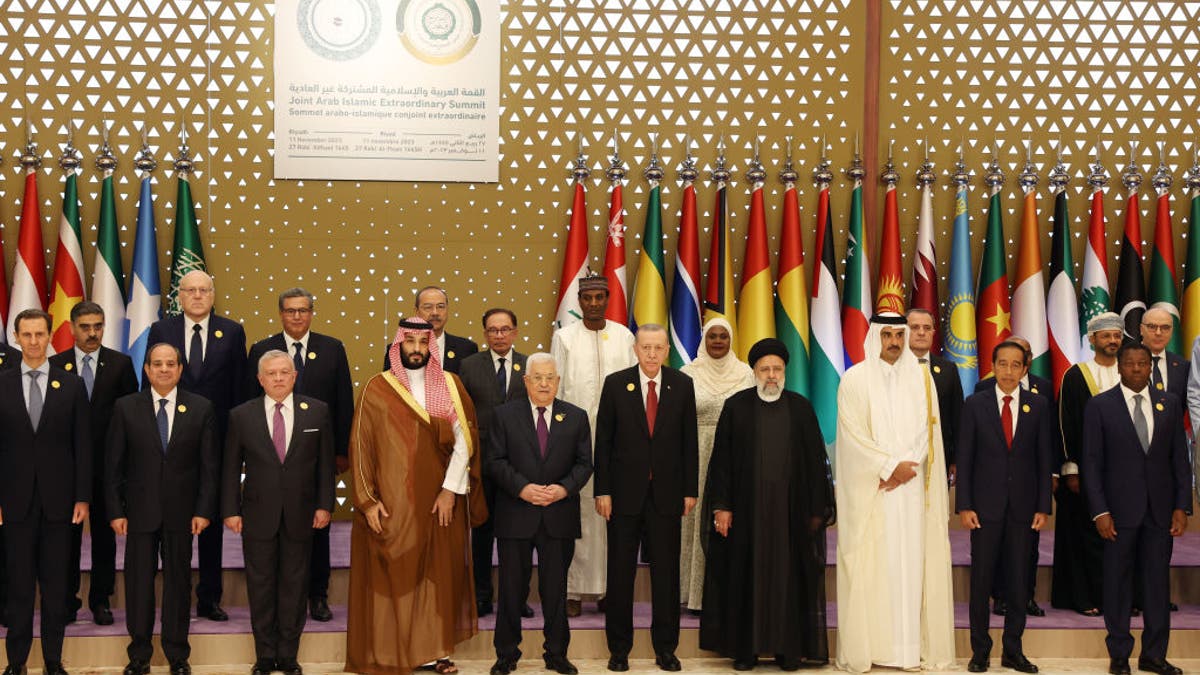
Turkish President Recep Tayyip Erdogan, fifth from right, poses for a family photo during the Extraordinary Joint Summit of the Organization of Islamic Cooperation and the Arab League at King Abdulaziz International Conference Center in Riyadh, Saudi Arabia, Nov. 11, 2023. (Mustafa Kamaci/Anadolu via Getty Images)
Some have questioned why nearby Arab countries, who have provided temporary shelter in the past to civilians from other regional conflicts, appear unwilling to even discuss sheltering the refugees from Gaza.
“Arab states have historically been divided with regard to their stance on the Palestinian people and numerous other significant issues,” Ahed Al-Hindi, a senior fellow at the Center for Peace Communications, told Fox News Digital. “Although these states project solidarity with the Palestinian people, they hold divergent views on the most effective course of action.”
“Certain countries, including those in the Arab Gulf, Jordan, Morocco and Egypt advocate for a two-state solution, which they believe can be accomplished through diplomacy. Conversely, the Iranian axis espouses the ideology of obliterating Israel and establishing a Palestinian state extending from the river to the sea.”
Al-Hindi said the primary reason why even the moderate states, most of which have diplomatic ties with Israel, have not taken practical steps to help the civilian population in Gaza is due to their aversion to Hamas and its goals.”
“As a result, many Arab countries are concerned that aiding the Gazans could inadvertently benefit Hamas, given that the organization has ruled in Gaza for nearly a generation,” he said. “Hamas is a network affiliate of the Muslim Brotherhood, and the Muslim Brotherhood opposes every Arab monarch. This poses significant internal risks to the aforementioned states.”
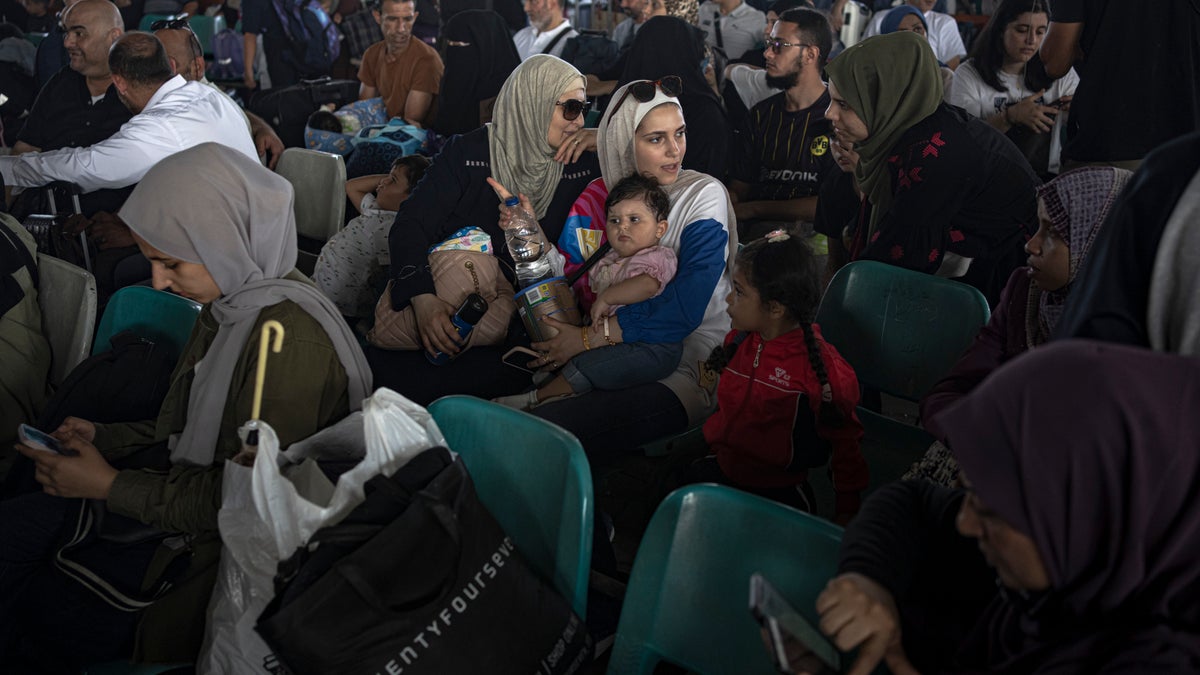
Palestinians wait to cross into Egypt at Rafah, Gaza Strip, Nov. 1, 2023. (AP Photo/Fatima Shbair)
“Ideologies of the Muslim Brotherhood advocate for the overthrow of Arab monarchies and the formation of a Sunni revolutionary Islamic republic, which would resemble Iran but operate under the banner of Sunni jihadism,” Al-Hindi added. “Since Hamas serves as an agent for Iran, which in turn presents an additional danger to Arab monarchs, the majority of these nations are worried that their assistance to Gaza may fall into the clutches of Hamas.”
The two Arab countries bordering Israel on either side — Egypt and Jordan — have both pointedly refused to offer refuge to any number of Palestinians from Gaza, even though Jordan already has a large Palestinian population and Egypt’s expansive and sparsely populated Sinai Peninsula is just a few miles from where the thousands of Palestinians are now being cared for by international aid agencies.
Earlier this month, Egypt’s Prime Minister Mostafa Madbouly dismissed calls for displaced Palestinians to resettle in the Sinai desert, saying his country would protect its land and sovereignty at any cost. His comments came following the revelation of an Israeli intelligence document proposing that residents of the Strip be evacuated to tent cities in Sinai as the Israeli military works to destroy Hamas.
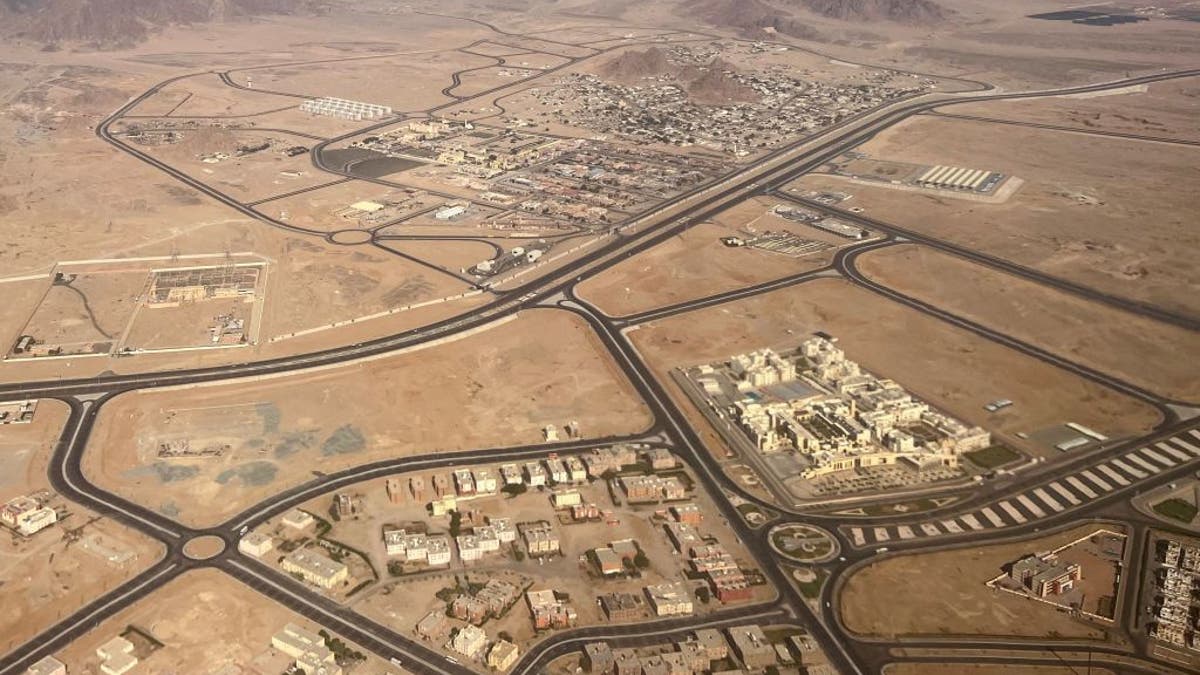
An aerial picture taken from a commercial airplane shows a view of Egypt’s Red Sea resort of Sharm el-Sheikh on the Sinai Peninsula. (Ahmad Gharabli/AFP via Getty Images)
“We are ready to sacrifice millions of lives to protect our territory from any encroachment,” Madbouly said in a recent speech, advocating that a two-state solution between Israel and the Palestinians was the only comprehensive resolution that would guarantee regional peace.
Hussain Abdul-Hussain, a research fellow at the Foundation for Defense of Democracies, told Fox News Digital that such a solution should have been touted by the international community at the onset of the war.
“Washington should have made the humanitarian argument, helped fund a camp for Gaza refugees in Sinai and guaranteed their return after the end of the war,” he said. “This would have convinced Egyptians to take them.”
